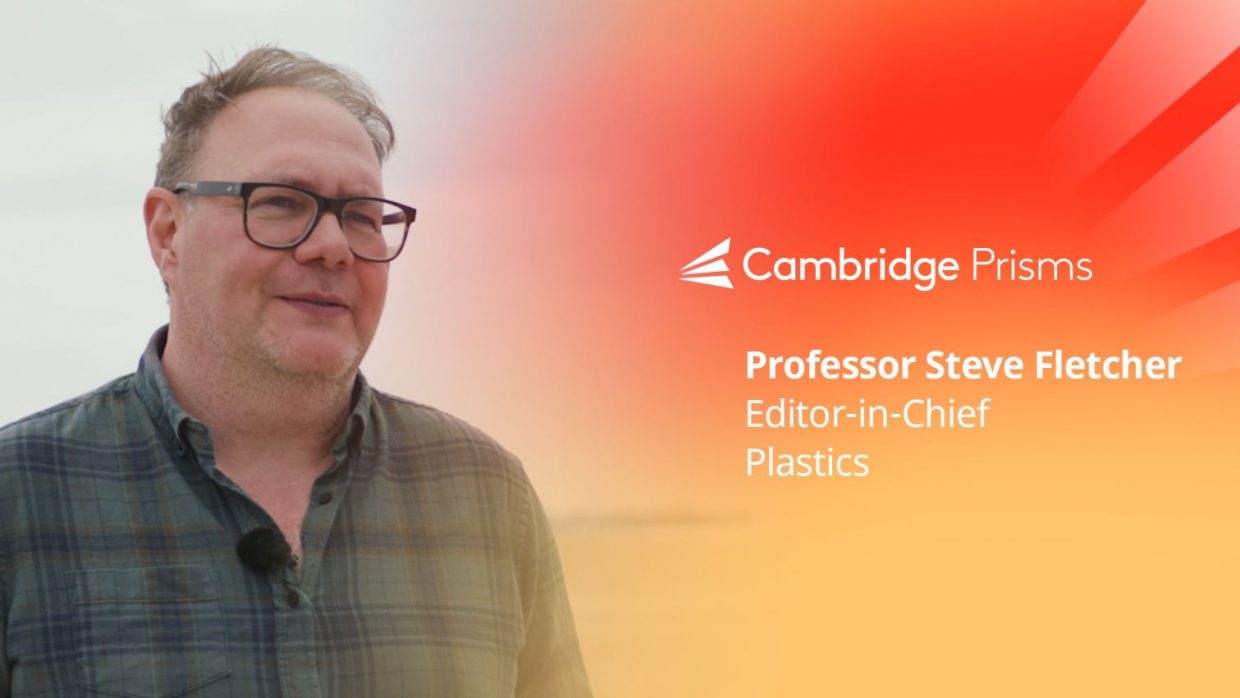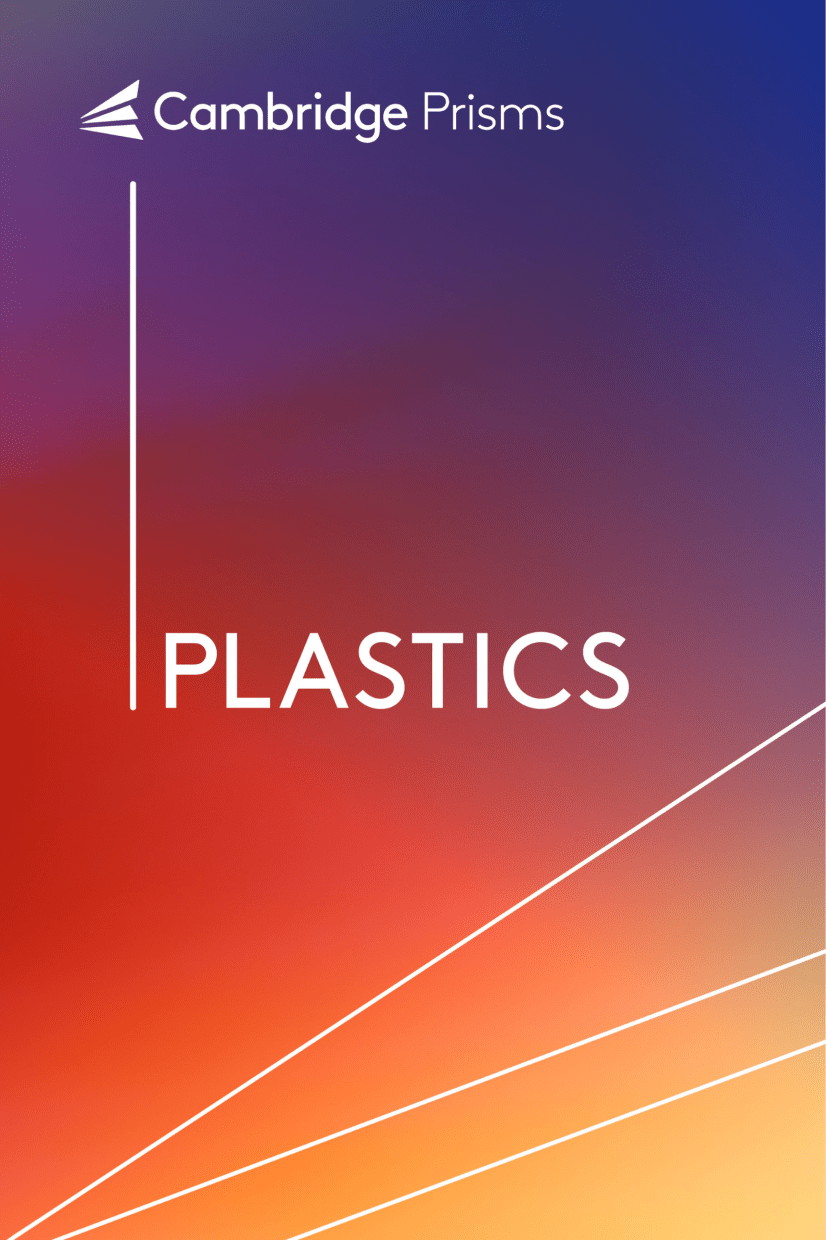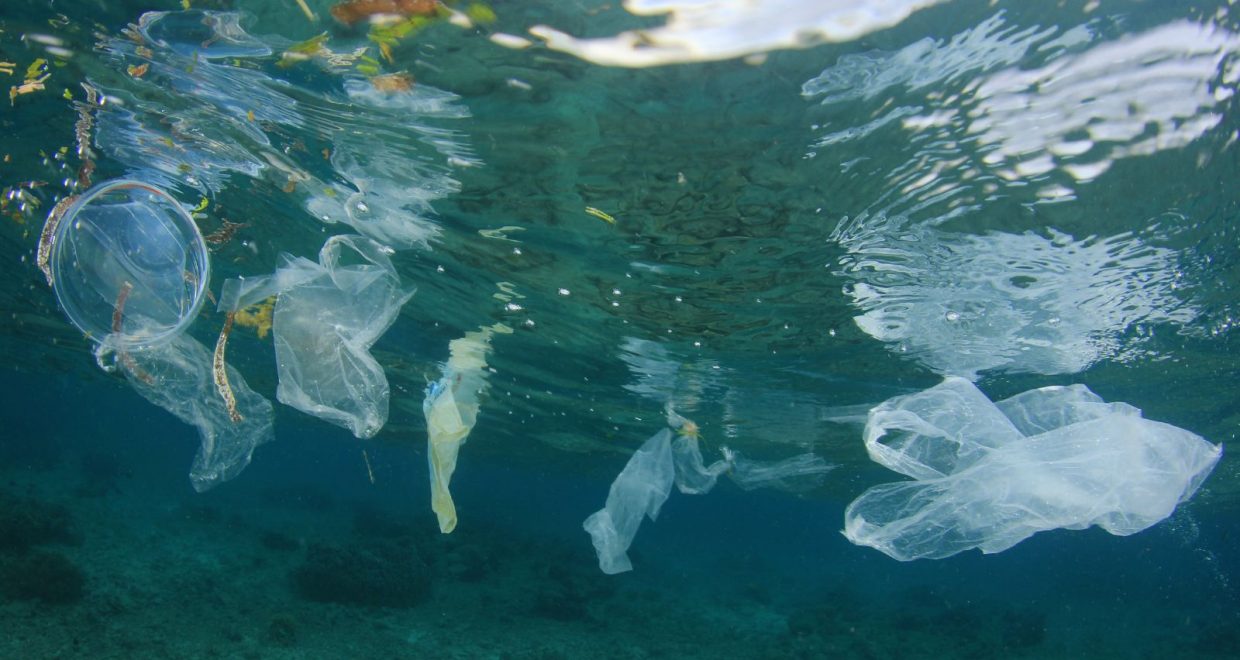Sphere of influence
Cambridge Prisms: Plastics Editor-in-Chief Steve Fletcher describes his hopes for a circular plastics economy and the opportunity to drive global policy changes

‘It’s funny how careers evolve,’ laughs Steve Fletcher. ‘What you are qualified in, and what you end up doing, are often quite far apart.’
Steve, who was recently appointed Editor-in-Chief of Cambridge Prisms: Plastics, is a perfect case in point. Trained as a geographer, he was drawn to the great outdoors: rock climbing, hiking – and, crucially, a thirst for knowledge of how the world was formed and the relationship between people and nature. These days he is one of the top 10 most-cited scientists in the field of marine policy, with more than 100 peer-reviewed publications and research reports, and an expertise in ocean conservation developed over 20 years of research and practice.
He says: ‘I was particularly drawn to the sea, so I did a master’s and then a PhD in coastal management. Over the years I’ve become more focused on applied research and trying to solve real problems that communities face. I’ve been fascinated in how to protect areas from damage or loss in terms of their biodiversity, to what I’m doing now – which is more focused on global-scale change and plastics pollution in particular.’
Steve’s PhD was completed on a part-time basis as he moved from one university to another before settling at the University of Plymouth as the director of the Centre for Marine and Coastal Policy Research – which, at that time, was ‘very much the pinnacle’ of his ambitions. Indeed, Plymouth is one of the most prominent marine universities in Europe: ‘It was an amazing point to get to, but I suppose I became a bit disillusioned by how much academic research doesn’t have the impact that it deserves.
‘I felt that I needed to contribute to the world in a different way, so I left them to work for the UN Environment Programme, at the World Conservation Monitoring Centre in Cambridge, as the head of the marine programme.’ Increasingly, driven by the knowledge that plastics pollution is a common denominator in the so-called triple environmental crisis – climate change, biodiversity loss and pollution – Steve immersed himself in that world and four years ago moved to the University of Portsmouth as Professor of Ocean Policy and Economy, and Director of the Sustainability and the Environment research theme.
Breaking free of linear production
The University of Portsmouth is a world leader in plastics research, with at least 100 people working in areas from fashion to enzyme digestion to explore opportunities for the reduction of plastic use, improve our understanding of the effects of plastic, develop alternatives to plastic that are less damaging to the environment – and to find better ways to reuse and recycle plastics.
For example, at the Centre for Enzyme Innovation they are using enzymes to break down plastics into their component parts.
‘This is quite a breakthrough; if enzyme digestion can be replicated at a commercially viable scale, in theory, it means that we can reuse our existing plastic stock without the need to create new ones,’ Steve continues. ‘This is the core challenge – to shift the plastics economy. In a linear economy, plastics may be used once or several times but then disposed of. We have to break free of that model but sadly, at present, waste plastic has very limited value and vast amounts of used plastic ends up as pollution. You don’t see waste gold lying on the side of the road because it is too valuable!’
Steve adds: ‘The system needs to shift globally. Policymakers must be strong and find a way to transition the plastics economy into a circular state. But currently there are no international rules – and, the more you dig into it, the more complicated and intractable the problem becomes because of financially and politically-invested interests.’
A new prism of communication
It’s difficult to overstate the dangers that plastics represent, says Steve: ‘Not everybody likes to use the word crisis, but I think it’s correct. What people don’t often talk about is the urgency of it. And it is killing people. It’s wrecking environments. It’s stunting our ability to respond to climate change. It is an environmental emergency.’
Steve’s colleagues at Portsmouth have discovered that there may be 100 times the volume of microplastics in domestic settings as there are outdoors, while there is already growing evidence that plastic accumulates in the lungs, can travel through the bloodstream, and even end up in breast milk. But, despite this, Steve says there is not at present a definitive ‘smoking gun’ that links plastics pollution and human health – as obvious as it might seem.

Steve cites the challenge of where to publish solutions- and policy-based research around plastics as a key reason for accepting the role of Editor-in-Chief at Cambridge Prisms: ‘I jumped at the chance because I think the journal has a huge amount to offer; this is something the world needs.
‘A lot of plastics research out there is mono-disciplinary – which is great in its own right. But we need to think more deeply about the “so what?”. There might be a new polymer breakthrough, but what does that mean? How do we integrate that into communities, into business, and into policymaking? What other shifts do we need to see in science to unlock policy changes? Currently there’s nobody publishing articles about that in a coherent multidisciplinary way.
‘What we are trying to do is find a home for that type of debate and research. We want to become the “go-to” journal for anyone interested in how to tackle the global plastics crisis.’
Cambridge Prisms: Plastics will have a primarily academic readership, but Steve is hopeful that, via its communications channels, it will reach a wider audience: ‘It’s unrealistic to expect policymakers and businesses to read lots of journal articles. But we can create summaries, we can distribute policy briefing documents, we can pull together articles and draw out key insights – so it becomes a much more digestible product.’
Full circle
Living within earshot of the ocean in Portsmouth, Steve describes himself as an ‘aspiring and reluctant sea swimmer’ – which gives him a perfect opportunity to reflect on his work and to ‘connect back to the reality of the world’, in the same way that he was inspired to embark on his career as a youngster.
He concludes: ‘Often you don’t quite see the impact of what you do because it just gets subsumed into a bigger process, and your own role in it can feel quite ambiguous; that can leave you feeling uncertain of your own contribution. Grappling with all the issues, and that feeling of “inspired versus hopeless” is a daily occurrence. Just connecting back into nature and going for a walk on a breezy beach, in horizontal rain, is quite nice actually.’






